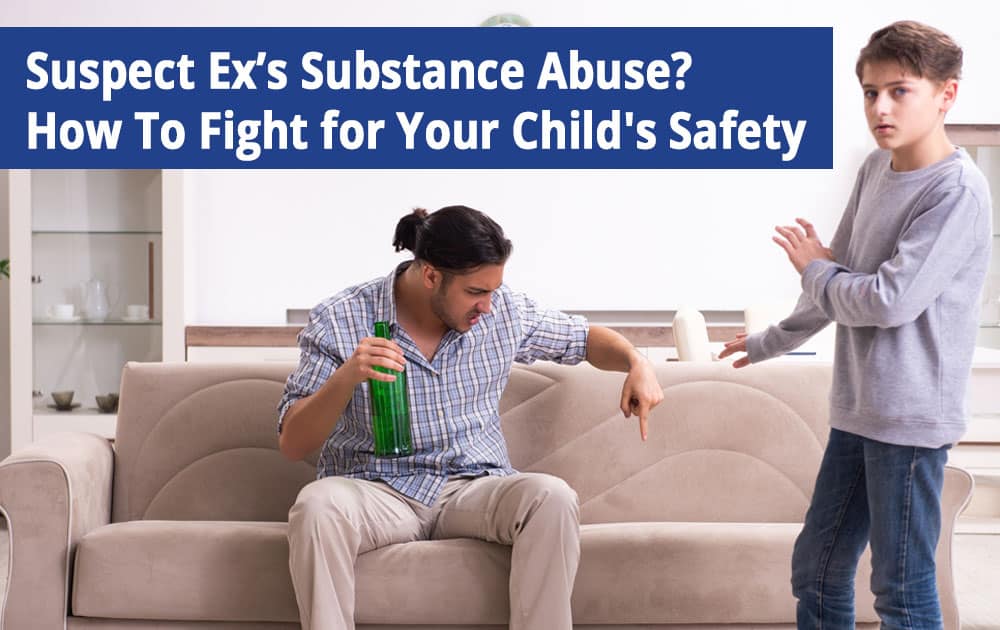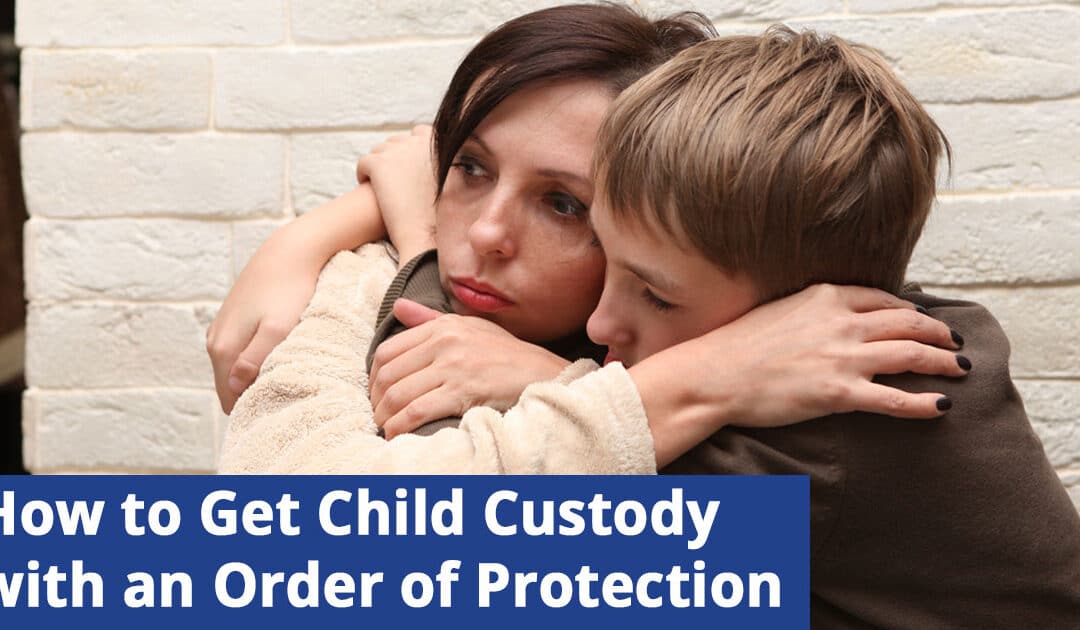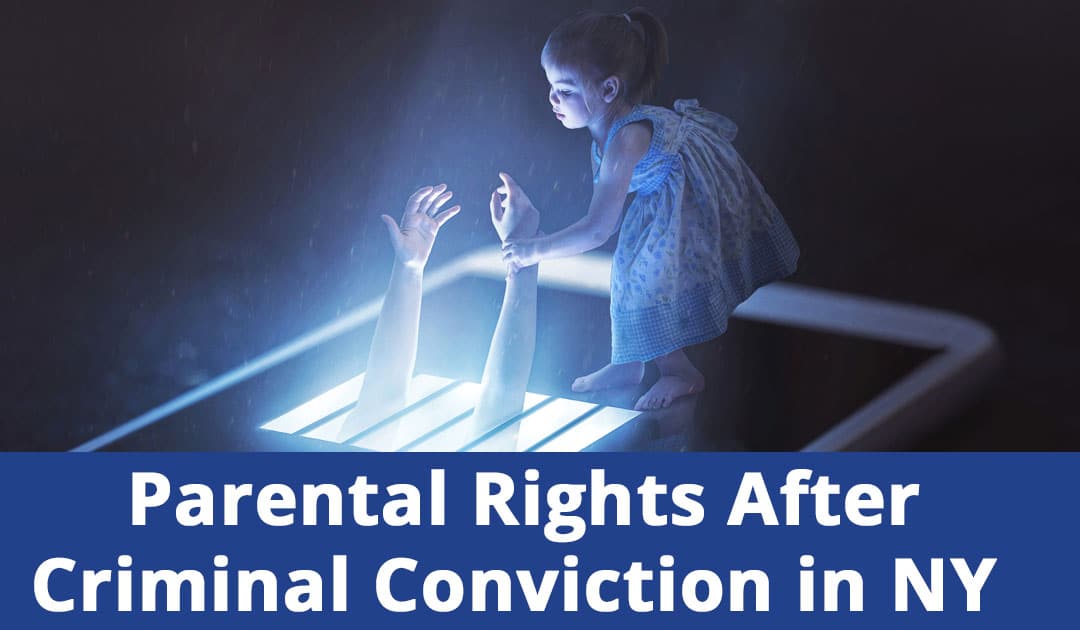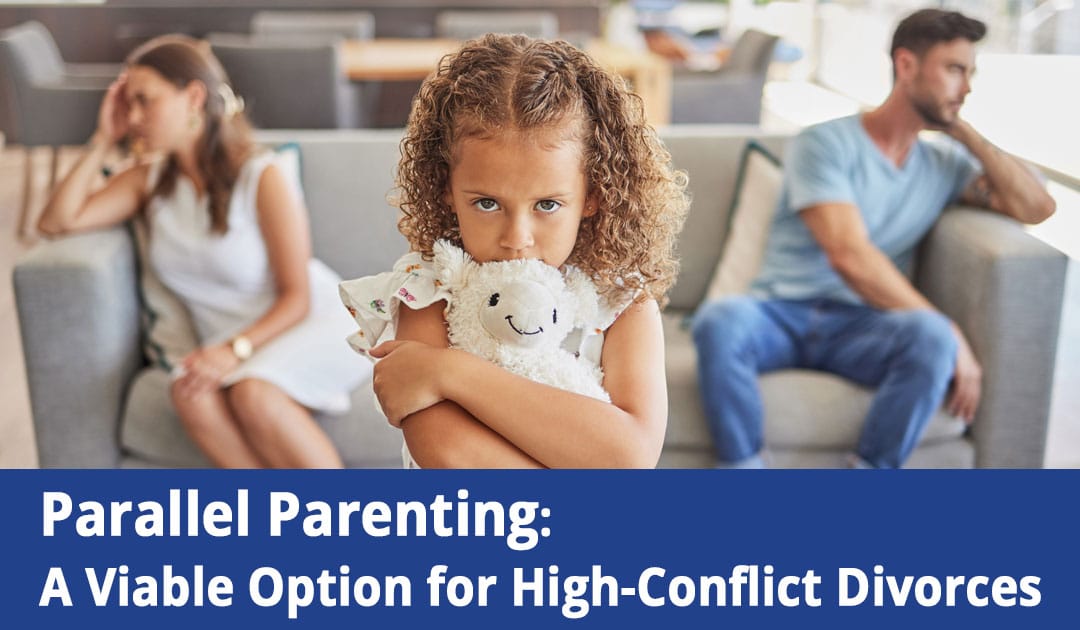
How to Get Full Custody in New York
How to Get Full Custody in New York
So you’re thinking about going for full custody of your children. We’re not surprised; many of our clients ask us how to get full custody of a child when they are going through a divorce on Long Island, New York. The whole custody process can feel overwhelming, but you’re not alone. We get it – it’s a big step with a lot at stake. Plenty of good parents in New York are seeking sole legal and physical custody every day. But it’s not easy. The key is being strategic, knowing your rights, and building the strongest case possible. With some practical tips and the right legal support on your side, you can set yourself up for the best chance of success. In the right situations, getting full custody is possible with realistic expectations, perseverance, and a focus on your kids’ best interests. We’ll walk you through the steps so you can make the smartest moves. Let’s dig in and get you prepared to take control of this process.
Obtaining full custody in New York state can be a complex and emotionally challenging process. Understanding the legal requirements, preparing a compelling case, and navigating the Nassau County family court and Suffolk County family court systems are crucial steps in pursuing full custody on Long Island.
New York state family courts prioritize the best interests of the child when determining child custody arrangements, making it essential to demonstrate a stable and nurturing environment at home. Factors such as the child’s relationship with each parent, their living situation, and the ability to provide a safe and supportive home environment are key considerations for all family courts in New York. Legal representation and thorough documentation of pertinent evidence are invaluable in building a strong case for full custody. This article aims to provide a comprehensive overview of the steps, legal considerations, and practical strategies involved in seeking full custody in New York.
New York Custody Laws
Overview of Custody Laws in New York
Custody laws in New York state are designed to govern the legal rights and responsibilities of parents in cases of separation or divorce. It is imperative for you as a parent to have a comprehensive understanding of these laws as you navigate the complexities of custody arrangements. The laws encompass various aspects such as decision-making authority, residential arrangements, and visitation schedules.
Understanding Full Custody in New York
What Does ‘Full Custody’ Mean?
In New York, the term “full custody” isn’t officially used. Instead, the court awards either sole custody or joint custody based on the child’s best interests. Sole custody means only one parent has legal custody and decision-making abilities over major life choices for the child.
There are Two Types of Sole Custody in New York State:
- Sole legal custody: One parent makes all major decisions about the child’s welfare like education, religion, and medical care.
- Sole physical custody: The child lives primarily with one parent, while the other has visitation rights.
It’s possible for parents to have different custody arrangements — like one parent having sole legal custody while sharing physical custody with the other. The key factor is what custody situation serves the child’s best interests.
It is essential for parents to understand the nuances of each type of custody before making decisions that will impact their child or children. Factors such as the child’s best interests, the ability of each parent to provide a stable environment, and the nature of the relationship between the child and each parent all play crucial roles in determining the most suitable custody arrangement.
New York state child custody laws prioritize the well-being of the child, and the court may consider the child’s preferences, if they are of a certain age and maturity level, when making custody decisions. Additionally, the court may also consider factors such as the mental and physical health of each parent, any history of domestic violence, and the ability of each parent to foster a positive and nurturing relationship between the child and the other parent.
Navigating New York custody laws requires a thorough understanding of the various types of custody and the factors that influence custody decisions. Parents are encouraged to seek legal guidance from an experienced family law attorney to ensure that they are well-informed and equipped to make decisions that serve the best interests of their child.
How New York Family Courts Determine Sole Custody
New York family courts don’t automatically favor the mother or father when deciding custody. The court’s main goal is to protect the child’s overall well-being and happiness. To do this, judges consider many factors like:
- Each parent’s ability to provide a stable home environment
- The child’s relationships with each parent
- Each parent’s work schedule and availability
- Any history of domestic violence, substance abuse, etc.
- The child’s wishes, if they’re mature enough
Having sole custody doesn’t necessarily mean the other parent gets zero visitation rights. Family courts on Long Island still aim to ensure children have frequent, meaningful contact with both parents when possible and appropriate.
It’s Not Easy Winning Full Custody in New York
To be clear, getting sole custody in any form is very difficult. New York courts prefer joint custody arrangements whenever feasible. You’ll need strong evidence that sole custody truly benefits the child more than co-parenting.
Common reasons for awarding sole custody include:
- Proving the other parent is unfit or unwilling to be an active parent
- The other parent’s work/living situation makes co-parenting impractical
- One parent was the child’s primary caretaker for a long period
If you want sole custody, you need to prepare a thorough case showing why it’s in the child’s best interests compared to joint custody. Having an experienced attorney is highly recommended.
Factors Involved in Full Custody Determination in NY
In child custody cases, both Nassau County Family Court and Suffolk County Family Court carefully evaluate and considers various factors to make decisions that are in the best interests of the child. Among these factors, the parenting ability and stability of each parent play a significant role. It is crucial for parents to understand the weight of these factors in custody determination and how they can positively influence the outcome of any child custody decisions.
Parenting Ability and Stability: Vital Factors for Full Custody in New York
Parenting ability encompasses a wide range of skills and attributes essential for raising a child. This includes emotional stability, the provision of a safe and nurturing environment, consistent and responsible decision-making, and the ability to meet the child’s physical, emotional, and developmental needs. The court assesses each parent’s capacity to provide a loving and supportive environment for the child in reaching decisions about custody of that child.
Stability is another critical factor that influences custody decisions in New York. It refers to the predictability, consistency, and reliability in a parent’s life and parenting practices. This can encompass stable housing, employment, and emotional well-being. New York family courts recognize that parents who demonstrate stability are more likely to provide a secure and consistent environment for their children.
The Child’s Best Interests: Critical for Full Custody in New York
In addition to evaluating the parenting ability and stability of each parent, Long Island family courts prioritize the best interests of the child at all times. This standard considers the child’s physical and emotional needs, the quality of their relationship with each parent, the child’s adjustment to their home, school, and community, and the ability of each parent to foster a positive and healthy relationship with the child.
The best interests of the child are the primary focus in custody determinations. Ultimately, the court aims to ensure that the child’s well-being and development are safeguarded, and that they have the opportunity to maintain meaningful relationships with both parents whenever possible.
Navigating Full Custody Determination with Insight
Understanding the significance of how the courts view parenting ability, stability, and the best interests of the child is pivotal for parents involved in custody proceedings. By prioritizing their child’s welfare and demonstrating a capacity to provide a loving and stable environment, parents can positively influence custody determinations. Seeking legal guidance and support from an experienced family law firm can also aid parents in navigating this process and advocating for their child’s best interests.
Parenting ability and stability, along with the child’s best interests, are fundamental considerations in custody determination. By recognizing the weight of these factors and actively addressing them, parents can contribute to a fair and favorable resolution in custody matters.
When to Seek Full Custody of Your Child in New York
Instability or Substance Abuse Issues
If the other parent is struggling with serious instability, substance abuse problems or addiction issues that put your child at risk, it may be time to pursue full custody. A parent’s inability to provide a stable, nurturing environment can be grounds for limiting their custody or visitation rights.
Neglect or Abandonment
Has the other parent essentially abandoned the child, failing to maintain contact or demonstrate an active interest in their life? Neglect is a form of emotional abuse. If they’ve been absent or provided no financial/emotional support long-term, seek legal advice on getting full custody.
Risk of Harm or Unfit Environment
Most importantly, if there’s evidence the other parent is causing emotional, psychological or physical harm to the child — or exposing them to an unfit environment — prioritize your child’s safety. Don’t wait to take legal action. Their well-being should come first.
Differing Values or Parenting Styles
While differing values or parenting philosophies alone usually aren’t enough for a judge to grant full custody in New York, they can contribute to the argument if there are other risk factors. Outline how the lack of co-parenting ability and frequent conflicts negatively impact your child.
Document Everything to Win Your Sole Custody Case in NY
Keep a record of all evidence that demonstrates why sole custody may be warranted — credible witnesses, photos/videos, police reports, therapist statements, etc. Having thorough documentation will strengthen your case.
Ultimately, the court’s main consideration is the child’s best interests based on the specific circumstances. If you have serious concerns about your child’s safety or well-being, it’s wise to consult an experienced family law attorney about petitioning for full legal and physical custody.
How to File for Full Custody on Long Island, New York
Understand the Legal Process for Full Custody in New York
Getting full custody in New York involves filing paperwork and presenting a strong case to the court. You’ll need to file a custody petition either in Family Court or as part of a divorce proceeding in Supreme Court. Hiring an experienced family law attorney can greatly improve your odds of a positive result.
Initiating the Legal Process for Full Custody in New York
Filing for full custody in New York can be a complex and emotional process. To initiate the legal process, it is crucial to fill out the necessary paperwork, which typically includes a petition for custody. This document outlines the reasons for seeking full custody and provides details about the child’s living situation, schooling, and healthcare. It is essential to gather any supporting evidence for why you should have full custody, such as documentation of the other parent’s inability to provide a safe and stable environment. Remember, New York courts prioritize the best interests of the child when determining custody arrangements. Therefore, the documentation and evidence provided should focus on how granting full custody to one parent would benefit the child’s well-being and development.
Prove You’re the Better Parent
The court’s main concern is the child’s best interests. So you’ll need to demonstrate that you can provide a stable, nurturing environment better than your ex. Document everything — from school performance and medical records to unsafe living conditions at their home. Eyewitness testimony from teachers, doctors or a court-appointed evaluator also helps build your case.
Negotiate a Settlement
Court battles are stressful and expensive. Before going to trial, try negotiating a custody agreement with your ex through mediation or your family law attorney. You may have to compromise on some visitation terms. But avoiding an adversarial fight usually leads to better co-parenting down the road.
Brace for the Long Haul
Full custody cases rarely get resolved quickly, especially if the other parent is uncooperative. The process often drags on for months or even years. Have realistic expectations – and plenty of patience. The emotional and financial toll can be immense, but staying focused on your child’s well-being can help you push through.
What to Expect at Your Full Custody Hearing
The ‘Best Interests’ Standard
In New York, custody decisions revolve around the “best interests of the child” standard. The judge will examine various factors to determine what living and custody situation benefits the child’s overall well-being and development the most. This subjective analysis aims to provide a safe, stable environment for the child’s healthy upbringing.
Key Factors Considered in Determining Sole Custody
The court will assess several elements when determining custody, including:
- Each parent’s ability to provide emotional support, love, and guidance to the child
- Each parent’s lifestyle, living conditions, and ability to meet the child’s physical needs
- The child’s existing ties to each parent’s home, school, and community
- Evidence of domestic violence, substance abuse, or other issues that could impact parenting ability
- The child’s own desires, if they are of sufficient age and maturity to express a preference
The Hearing Process for Sole Custody
The custody hearing itself involves both parents providing testimony and evidence to support their case for custody. Witnesses like teachers, relatives, or child psychologists may also be called. The judge questions all parties and reviews documentation before rendering their decision based on the “best interests” factors.
Ultimately, remaining calm, truthful, and focused on your child’s needs is crucial during this emotional process. Having an experienced family law attorney represent you can also significantly strengthen your custody case.
Importance of Legal Counsel in Seeking Full Custody
Seeking full custody is a significant legal undertaking, and having the guidance of a knowledgeable family law attorney is highly advisable. Experienced legal counsel can provide invaluable support by helping navigate the complexities of the legal system, ensuring that all paperwork is completed accurately, and representing your best interests in court, if necessary. Furthermore, an experienced attorney can offer guidance on how to present a compelling case for full custody, providing peace of mind during this challenging time. When selecting your legal counsel, it’s essential to choose an attorney with expertise in family law and experience in handling custody cases on Long Island, New York. Your lawyer should demonstrate a commitment to understanding your specific circumstances and advocating for the well-being of your child. They can also aid in negotiating with the other parent or their legal representation to potentially reach an amicable agreement outside of court, minimizing the emotional and financial strain on all parties involved.
Understanding the Legal Factors Involved in Getting Sole Custody
It’s crucial for individuals seeking full custody in New York to understand the legal factors that influence custody determinations. New York courts consider various aspects, including the child’s relationship with each parent, the ability of each parent to provide for the child’s physical and emotional needs, any history of domestic violence or substance abuse, and the willingness of each parent to foster a relationship between the child and the other parent. Understanding these factors can help individuals prepare a stronger case for full custody by addressing each element comprehensively and providing evidence that demonstrates their ability to meet the child’s needs effectively.
Emotional Support and the Child’s Well-Being are Keys to Gaining Full Custody
During the process of filing for full custody, it’s essential to prioritize the emotional well-being of the child. The legal proceedings and potential disputes involved in obtaining sole custody can be emotionally challenging for the child, and it’s crucial to provide a supportive and nurturing environment at all times. It may also be beneficial for the parent to seek emotional support for themselves as they navigate this process. Seeking counseling or joining support groups can provide a valuable outlet for emotional expression and guidance on how to create a stable and positive environment for the child during this transition.
Filing for Full Custody in New York is Complex
Filing for full custody in New York involves navigating a complex legal process, and it’s essential to approach it with careful consideration and thorough preparation. Seeking appropriate legal counsel, understanding the legal factors that influence custody determinations, and prioritizing the emotional well-being of the child are crucial elements of this process. By taking these steps and ensuring that every decision you make is made with the best interests of the child in mind, individuals can work toward getting full custody in New York while providing a stable and nurturing environment for their child’s growth and development.
Preparation for Getting Full Custody in NY
When preparing to get full custody of a child in New York, it is crucial to document the parenting responsibilities of each parent. This documentation should include keeping track of the child’s daily routine, medical records, and any other important information. Establishing the stability and support for the child is essential. You need to show you are creating a stable living environment and ensuring that the child has a strong support system in place, whether it be through family members, friends, or professional resources.
Use a Comprehensive Approach to Document Parenting Responsibilities to Achieve Full Custody in New York
Documenting parenting responsibilities includes maintaining a thorough record of the child’s educational and extracurricular activities, as well as any specific needs or requirements they may have. This documentation not only demonstrates a clear understanding of the child’s needs but also serves as evidence of the parent’s commitment to providing comprehensive care. It is important to keep detailed records of your child’s school performance, attendance, and any educational assessments or special education services they may require. Documenting the child’s extracurricular activities, hobbies, and interests can showcase your dedication to nurturing the child’s individuality and personal development.
Establish Stability by Creating a Nurturing Environment
It is important to demonstrate that you are establishing stability by creating a consistent and nurturing living environment for the child. This can involve maintaining a routine that provides structure and predictability, as well as ensuring that the child has access to necessary resources and services. Stability also includes providing emotional support and a sense of security for the child. This can be achieved by fostering open communication, expressing unconditional love, and addressing any emotional or psychological needs the child may have. Ensuring a safe and healthy living environment is essential for the child’s overall well-being and will be noted by the appropriate Long Island family court.
Enlist Professional and Personal Assistance to Build a Strong Support Network to Gain Full Custody in NY
Building a strong support network is crucial for the child’s well-being during the transition to full or sole custody. It is vital for parents to identify and engage with individuals or organizations that can offer emotional, financial, and practical support to both the child and the parent. This can include extended family members, close friends, support groups, and professional counselors or therapists. Seeking legal advice and guidance from experienced family law attorneys can also provide valuable support and ensure that the custody process is navigated effectively.
Documentation is Key to Getting Full Custody in New York
By prioritizing the documentation of parenting responsibilities, the establishment of stability, and the cultivation of a robust support system, you can better prepare yourself for the challenges and responsibilities associated with gaining full custody of your child. It is crucial to approach the process with diligence, empathy, and a focus on the child’s best interests, ensuring that their well-being remains the central priority throughout the custody transition.
Proving You Are the More Fit Parent for Sole Custody in NY
Document Everything
One of the most important things you can do to help your case for full custody is to document your involvement as a parent in the child’s life. It’s important to keep a detailed journal or log of all parenting duties, time spent with the child, child-related expenses, and any important events or issues. This documentation provides concrete evidence of your active role and commitment to the family court.
Gather Supporting Materials
Collect any relevant supporting documentation that demonstrates your fitness as a parent. Having this paperwork organized and readily available can strengthen your case. This documentation could include items such as:
- Report cards, medical records, and other documents showing your care for the children’s needs
- Photographs and videos capturing positive interactions and memorable moments
- Witness statements from teachers, childcare providers, friends, or family members
- Police reports or protective orders if there are any safety concerns
Emphasize Stability and Consistency
Long Island family courts want to ensure the children will have a stable, consistent environment. Highlight factors like:
- Your ability to provide a safe, nurturing home environment
- Involvement in the children’s education, extracurricular activities, and emotional development
- A solid support system of family or friends who can assist with childcare when needed Your flexibility to be available for the children’s needs and schedules
Demonstrate Your Willingness to Cooperate
While the situation may be contentious, it’s crucial to show a willingness to facilitate a relationship between the children and the other parent (unless there are extenuating circumstances like abuse or neglect). Offer a reasonable parenting plan and be open to compromises regarding visitation schedules and decision-making. This cooperation reflects your commitment to the children’s best interests.
Maintain Professionalism
Throughout the custody process, always conduct yourself with poise and respect. Avoid speaking negatively about the other parent, making unsubstantiated accusations, or displaying hostility or anger. The court will view these behaviors unfavorably. Instead, remain focused on presenting yourself as the level-headed, responsible parent best suited to have primary custody.
Gathering Evidence to Support Your Full Custody Claim
Official Documentation is Key
Remember, official documents carry a lot of weight in custody battles. Things like medical records, police reports, and incident reports from your child’s school paint a clear picture of your situation. They’re hard evidence a family court judge can’t overlook.
Report Cards and Expenses
Beyond the major reports, don’t forget to gather mundane paperwork too. Report cards show your involvement in your child’s education. Receipts and bank statements prove you’ve been financially supporting them. Every scrap of evidence builds your case.
Create a Paper Trail
If you don’t have certain documents yet, start creating that paper trail immediately. Write letters to your ex about important issues, then keep copies. Follow up every phone call with a summary email for your records. Judges love a clear timeline of events.
Photos and Recordings
Visual evidence can be extremely powerful in demonstrating an unsafe environment, but be very careful about taking photos/videos without consent — that could hurt, rather than help, your case. Only record in your own home, car, etc. when your ex isn’t present.
Keep a Detailed Journal
Writing everything down creates a invaluable record. Log the date, time, and full details of every incident, no matter how minor it seems. Include direct quotes when possible. The longer your organized account goes back, the stronger your case becomes.
Witness Testimony
Finally, look for impartial witnesses who’ve observed your ex’s unfitness firsthand — teachers, counselors, law enforcement, etc. Getting statements in writing from trustworthy figures adds credibility to your case.
Preparing Your Paperwork for Full Custody in NY
Get Legal Counsel if Possible
While you can file for full custody pro se (without an attorney), it’s wise to consult an experienced family law attorney. An experienced lawyer’s guidance is invaluable when preparing paperwork and evidence for a full custody hearing.
Gather Key Documents
To file for full custody in New York, you’ll need copies of your child’s birth certificate, social security card, and other identifying documents. If applicable, collect records like report cards, medical files, and communications showing your active parenting role.
Outline Your Case
Effective paperwork tells a clear, compelling story about why you deserve full custody. Prepare an outline covering the child’s living situation, your involvement, the other parent’s deficiencies, and reasons full custody serves your child’s best interests.
Draft Forms Carefully
Most family courts in New York provide forms to petition for custody. Read instructions thoroughly and fill them out neatly. Include all requested information, checking for spelling and grammar errors. Incomplete or sloppy paperwork creates a poor first impression. An experienced family law attorney can help in this regard.
Get Forms Notarized
Many custody forms require notarization. Find a notary public at your bank, courthouse, or shipping store. Bring valid photo ID when getting signatures notarized.
Make Copies for Filing
Before filing your papers in Suffolk County or Nassau County family court, make copies of all completed custody paperwork for your records. The court will require multiple copies as well. Check the New York state family court website for accepted payment methods to cover filing fees.
Be Prepared for Patience
Filing for full custody requires perseverance, as cases can drag on for months. But taking time to properly prepare your paperwork lays a strong foundation for your custody fight.
Navigating the Legal Process of Full Custody in New York
Understanding Nassau County and Suffolk County Court Procedures
Court procedures are the set of rules and processes that govern how a case is handled in a legal system. Understanding these procedures is crucial for anyone involved in a legal dispute, whether as a plaintiff or defendant. It involves knowing the correct forms to file, the deadlines to meet, and the proper way to present evidence and arguments in court. By having a clear understanding of the appropriate court procedures in Nassau County or Suffolk County, individuals can ensure that their case progresses smoothly and efficiently. Additionally, it is important to recognize the different types of courts and their jurisdictions. This knowledge can help in determining the appropriate venue for filing a case and understanding the specific rules that apply to different courts.
Presenting a Strong Case for Full Custody
Presenting a strong case involves thorough preparation and effective communication. It begins with gathering all relevant evidence, such as documents, witness testimonies, and expert opinions. This evidence must then be organized and presented in a clear and compelling manner to support the legal arguments. Understanding the rules of evidence and courtroom etiquette is essential for presenting a strong case. By mastering these elements, individuals can enhance their credibility before the court and increase the likelihood of a favorable outcome. Moreover, it is crucial to comprehend the importance of experienced legal representation. Engaging a skilled and experienced attorney can significantly impact the strength and presentation of a case, as your attorney will possess the expertise to navigate complex legal procedures and advocate effectively on your behalf.
Navigating the legal process can be complex and intimidating, especially when you are unfamiliar with court procedures. Understanding court procedures and presenting a strong case is essential to achieving a favorable outcome. By familiarizing yourself with the legal process, you can navigate it more effectively and increase your chances of success. Seeking professional legal guidance and representation can provide valuable support throughout the legal journey, ensuring that your rights are protected and your case is presented in the best possible light.
After Obtaining Full Custody
Co-Parenting and Communication: Nurturing a Healthy Relationship
After obtaining full custody of your child, it’s essential to focus on effective co-parenting and communication with the other parent. Co-parenting is crucial for the well-being of the child, and maintaining open, respectful communication can greatly benefit the child’s emotional development. It’s important to establish a healthy co-parenting relationship, keeping the child’s best interests at the forefront. When co-parenting, it’s vital to consider the child’s schedule, needs, and emotional health. Open dialogue, flexibility, and compromise can contribute to a more harmonious co-parenting dynamic, fostering a sense of stability and security for the child.
Ensuring the child’s well-being now and in the future should be your top priority. This involves creating a stable and nurturing environment for your child, both emotionally and physically. Providing consistent routines, showing love and support, and being actively involved in your child’s life are key aspects of ensuring their well-being. Additionally, being attentive to any signs of distress or adjustment issues in the child is vital, and seeking professional help if needed is important for their overall welfare. It’s also essential to encourage and support the child’s relationships with extended family members, friends, and their involvement in extracurricular activities, contributing to their overall growth and happiness.
As a custodial parent, it’s crucial to prioritize the child’s needs and maintain a positive and supportive co-parenting dynamic for their healthy development. Being empathetic, patient, and consistently present for the child during this transition is fundamental in helping them adapt and thrive in their changed circumstances.
Navigating the legal process to obtain full custody on Long Island, New York can be complex and emotionally challenging. It requires a deep understanding of state laws, thorough documentation, and the ability to present a compelling case in court. It’s crucial to seek the guidance of a qualified family law attorney and to prioritize the best interests of the child throughout the proceedings. While the road to obtaining full custody may be arduous, it’s important to remain resilient and focused on providing a stable and nurturing environment for the child. With the right support and preparation, it is possible to achieve a favorable outcome in the pursuit of full custody in Nassau County or Suffolk County New York court.
Getting Legal Help for Your Full Custody Case
Seeking Professional Guidance
When it comes to navigating the legal intricacies of a full custody case in New York, seeking professional guidance can make a world of difference. While it’s possible to represent yourself in Family Court, the process can be complex and emotionally charged. Enlisting the help of a knowledgeable attorney or legal aid organization can provide invaluable support and increase your chances of a favorable outcome.
Exploring Low-Cost Legal Options
For those facing financial constraints, there are several low-cost or even free legal resources available in New York. The New York State Child Support Helpline (1-888-208-4485) offers guidance on custody matters, while organizations like Family Legal Care provide legal representation for unrepresented parents in Family Court proceedings. It’s important to note that you don’t need an attorney to file a custody petition in Family Court. However, having an experienced legal professional by your side can ensure that your rights and your child’s best interests are protected throughout the process.
Seeking Emotional Support
In addition to legal assistance, it’s crucial to prioritize your emotional well-being during a full custody case. Seeking counseling or joining a support group can provide a safe space to process the complex emotions involved and help you make informed decisions with a clear mindset. Remember, the road to full custody can be challenging, but with the right legal guidance, emotional support, and perseverance, you can increase your chances of a favorable outcome that prioritizes your child’s well-being.
We Can Help You Get Full Custody
At Hornberger Verbitsky, P.C., we have extensive experience navigating the complexities of child custody laws in New York. Our team of dedicated attorneys will work closely with you to build a strong case for full custody, ensuring that your rights and the best interests of your child are protected.If you’re ready to take the first step towards securing full custody, we offer a complimentary and confidential consultation. Contact us today to discuss your situation and learn more about your options. Visit our website at [insert website link] to find out more about child custody laws in New York and how we can assist you.Remember, you don’t have to face this challenging process alone. Trust Hornberger Verbitsky, P.C. to guide you through the legal complexities of child custody and help you secure the best possible outcome for you and your child. Contact us at 631-923-1910 for a free consultation and case evaluation or fill out the short form on this page.
~Blair Sojka
FAQs: How to Get Full Custody in New York
What are the Grounds for Sole Custody in New York?
In New York, the court will award full custody based on the “best interests of the child.” This takes into account factors like each parent’s ability to care for the child, the child’s preferences (if old enough), and any history of abuse or neglect. A parent must demonstrate that granting the other parent visitation rights would be harmful to the child’s well-being. Having concrete evidence like witnesses, documents, or expert testimony strengthens your case.
How Do I File for Full Custody on Long Island?
To request sole custody during a divorce, you need to file a custody petition in the Supreme Court
in the county where your divorce is being handled. If you’re not divorcing, you’ll file in Family Court in your county. The petition should clearly state why you believe it’s in the child’s best interests for you to have full custody. Provide specific examples backing up your reasons.
How Much Does it Cost to File for Sole Custody?
According to the New York state Unified Court System website, it is free to file a custody petition in Family Court. However, additional costs like hiring an attorney, taking time off work, transportation, etc. can quickly add up. If you can’t afford the fees, you may qualify for a fee waiver based on your income and assets.
What’s the Full Custody Process Like in New York?
After filing, the judge may order a custody evaluation by court-appointed professionals. This involves home visits, interviews, and reviews of records like criminal histories. There are typically several court appearances over several months where evidence is presented. The judge ultimately decides based on all information gathered. Be prepared for a lengthy and often stressful process when seeking full custody.
Getting Sole or Full Custody is Not Easy in New York
So there you have it, folks. Getting full custody of your kids in New York is not easy. You’ll need to have an airtight case and be ready for a legal battle. But if you prepare properly, get all your ducks in a row, and work with a great lawyer, it’s definitely possible. Just remember to always put your kids first. Even if you don’t get full custody, your relationship with them is the most important thing. So, focus on being the best parent you can be, and good luck! Hopefully this guide gave you some useful tips and a place to start in your custody case. Now go out there and fight for your family!
GET YOUR FREE CONSULTATION TODAY Call 631-923-1910 or fill in the form below

Horberger Verbitsky, P.C. partners Robert E. Hornberger, Esq. and Christine M. Verbitsky, Esq.
Get your complimentary consultation and case evaluation with our experienced attorneys today. Your attorney will describe the many options available and determine together which is the right solution for you. By the end of this conversation, we’ll all understand how we can best help you to move forward.
No Cost or Obligation
There is no cost or obligation for this initial consultation. It is simply an opportunity for us to get to know each other, answer your questions and learn if Hornberger Verbitsky, P.C. is right the right law firm for you. Give us a call at 631-923-1910 or fill in the short form below for your free consultation and case evaluation. All Fields Are Required
About the Author
Robert E. Hornberger, Esq., Founding Partner, Hornberger Verbitsky, P.C.
- Over 20 years practicing matrimonial law
- Over 1,000 cases successfully resolved
- Founder and Partner of Hornberger Verbitsky, P.C.
- Experienced and compassionate Long Island Divorce Attorney, Family Law Attorney, and Divorce Mediator
- Licensed to practice law in the State of New York
- New York State Bar Association member
- Nassau County Bar Association member
- Suffolk County Bar Association member
- “Super Lawyer” Metro Rising Star
- Nominated Best of Long Island Divorce Attorney four consecutive years
- Alternative Dispute Resolution Committee Contributor
- Collaborative Law Association of New York – Former Director
- Martindale Hubbell Distinguished Designation
- America’s Most Honored Professionals – Top 5%
- Lead Counsel Rated – Divorce Law
- American Institute of Family Law Attorneys 10 Best
- International Academy of Collaborative Professionals
- Graduate of Hofstra University School of Law
- Double Bachelor’s degrees in Philosophy, Politics & Law and History from SUNY Binghamton University















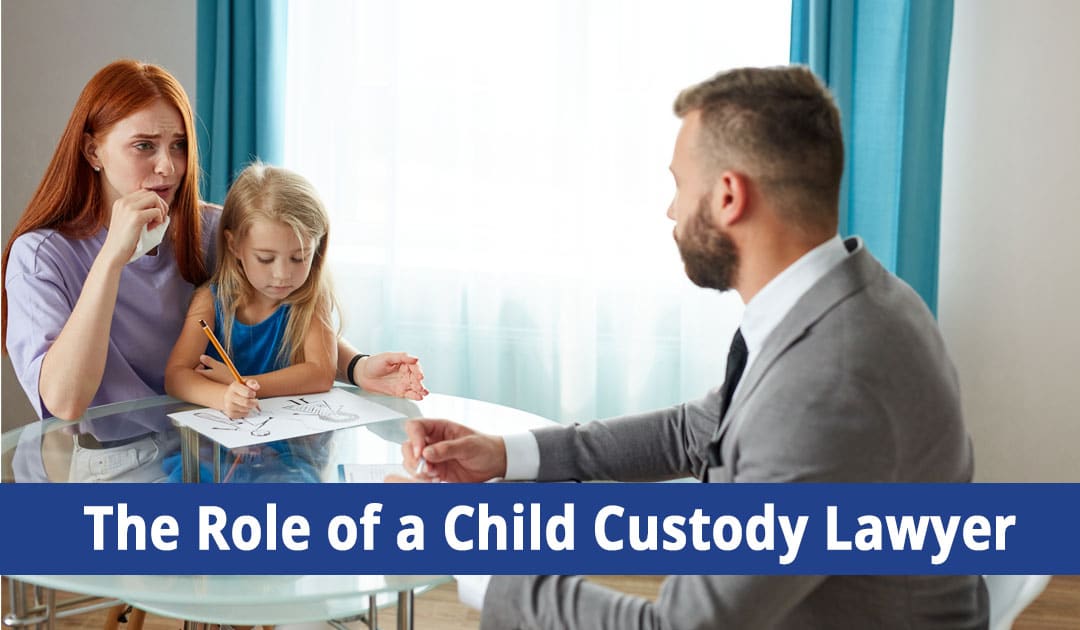

 Get your complimentary consultation and case evaluation with our experienced attorneys today. Your attorney will describe the many options available and determine together which is the right solution for you. By the end of this conversation, we’ll all understand how we can best help you to move forward.
Get your complimentary consultation and case evaluation with our experienced attorneys today. Your attorney will describe the many options available and determine together which is the right solution for you. By the end of this conversation, we’ll all understand how we can best help you to move forward.
